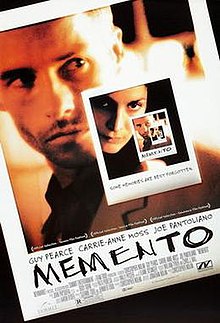I remember from past psychology classes I’ve taken how memory by nature is unreliable; it’s not a direct recall of an event, but the recall of the last time you recalled the event! Thus, if you recalled an event many times, but misremembered a small detail each time you recalled it, your whole memory could change over time into something completely different from the actual event! Thus, the unreliable nature of memory lends it self quite easily to manipulation and the implementation of false memories.The fact there are agencies dedicated to fabricating false memories for customers in Phillip K. Dick’s “We Can Remember if For You Wholesale” makes me question how much people in that society can trust in their memory and the facts that hold to be true (Dick, 1966).
Since our identities and conceptualization of the world is based on memory, it unnerves me how easily our understanding of ourselves and the society around us can be falsified or altered by the manipulation of memory. The protagonist, Quail, in Dick’s short story, has his conceptualization of who he is– from a government clerk to an Interplanet agent to the savior of the human race– change as he recovers memories forcefully buried. Because each revelation is more outlandish than the last, it became more difficult for me to separate what was real and what was fantasy in the short story. Quail’s arc in recovering his memories reminded me Lenny’s journey in the movie, “Momento”(Nolan, 2001).

https://en.wikipedia.org/wiki/Memento_(film)#/media/File:Memento_poster.jpg
In “Momento”, the protagonist Lenny is trying to track down the man who raped and murdered his wife. However, Lenny has anterograde amnesia, a condition that allows him to remember his distant past but prevents him from creating new long term memories. Thus, Lenny is literally living in the present because he can only remember events happening to him in 15-minute increments before his memory resets. The fact that the movie tells Lenny’s journey backwards further adds to the confusion of the viewer in trying to understand Lenny’s past and which characters to trust/distrust. Like in “We Can Remember if For You Wholesale”, the viewer/reader’s conceptualization of the protagonist’s identity and past changes as past memories are revealed. Furthermore, both Lenny and Quail are unreliable narrators because their unreliable memories makes it difficult for the viewer/reader to separate truth from fiction. Thus, this brings into question of how can we trust our perception of reality to be the truth when the nature of memory is be unreliable? Dick’s short story especially makes us think about the implications of technology in memory manipulation. If our realities are tied to memory, then should memory-altering devices even be allowed? However, is there way to use this technology for good, especially when treating memory-related disorders such PTSD or dementia? Furthermore, is there a way to regulate such technology so we can treat memory-disorders, but also preserve the sanctity of reality? Just some food for thought.
Sources Cited
Dick, Philip K. “We Can Remember it For You Wholesale” (1966). Ed. Arthur B. Evens, Istvan Csicery-Ronay Jr., Joan Gordon, Veronica Hollinger, Rob Latham, Carol McGuirk. The Wesleyan Anthology of Science Fiction. Middleton, Connecticut: Wesleyan University Press, 2010. 385-404.
Nolan, Christopher, Guy Pearce, Carrie-Anne Moss, and Joe Pantoliano. Memento. Widescreen, limited ed. version. Montreal: Alliance Atlantis, 2001.


Fantastic posting!